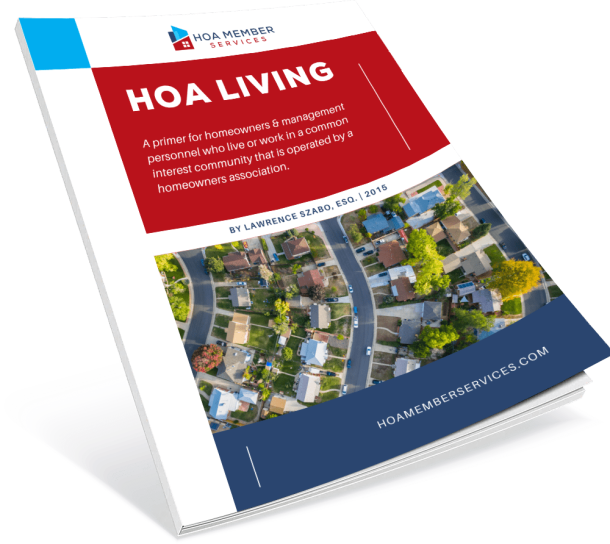Living in a community managed by a homeowners association (HOA) means dealing with rules. They are necessary for keeping harmony and order. However, sometimes, things can go wrong. HOA boards are typically run by volunteers. They manage a lot of money, so they can be susceptible to fraud, embezzlement, and other crimes. If you suspect wrongdoing within your HOA, here are steps you and other board members can take to initiate an investigation.

Is HOA Fraud Common?
HOA boards are especially vulnerable because they are often less scrutinized. Busy with their own lives, board members may not have the time to review every transaction closely. Those with a bit of financial know-how might manipulate accounts or engage in kickbacks. Remember, as a fiduciary, every board member is supposed to act in the best interests of the association’s money and homeowners.
What Are the Signs of HOA Fraud?
To spot HOA fraud, you need to know what you’re looking for. Common fraud issues in HOAs include embezzlement, breaking corporate law, kickbacks and election rigging.
For instance, in California, embezzlement is fraudulently taking property entrusted to someone. This means that if an HOA board member diverts association funds for personal use, it’s classed as fraudulent activity.
HOAs are relying technology to manage their operations more than ever before. This includes storing contracts and handling banking. The potential for fraud and theft grows. Technology improves efficiency, but it also brings risks. This is especially true when the community’s financial health is at stake. Managing an association’s finances requires not just technical skill but a high level of integrity from the board of directors and members.
Warning signs of fraud could include unusual payments, transactions to non-existent vendors, or forged documents. Recognizing these signs early is crucial for maintaining the financial integrity of the association. Board members, as fiduciaries, must remain vigilant for the warning signs of financial mismanagement or fraud.
How Do You Investigate Your HOA?
- Request an External Audit: If you’re concerned about how your HOA’s funds are being handled, request an external audit. This involves hiring an independent company to review the financial books thoroughly.
- Accessing HOA Records: If you’re not on the board, you might find it challenging to access necessary documents. However, laws such as the Civil Code sections 5200-5240 in California allow any member to access many HOA records. These include financial statements, contracts, and meeting minutes.
- Attend Board Meetings: Participate in or attend HOA board meetings to raise your concerns. Ask for a financial review or audit there.
- Call for a Special Meeting: Both board members and homeowners can call for a special meeting. As a homeowner, you can rally the support of at least five percent of the membership to hold such a meeting.
- Legal and Law Enforcement Steps: If your concerns are dismissed or ignored, consider escalating the matter. In California, for example, you can report suspected fraud or embezzlement to the police. You can also report it to the California Attorney General’s Office.
Can You Investigate Your HOA Online?
In today’s digital age, initiating an investigation into your HOA’s activities can also begin online. This approach can be great for getting initial info. It is also useful if in-person meetings are hard to arrange.
- Online Forums and Communities: Engage with online forums and community groups specific to HOA issues. Websites like Reddit, Nextdoor, or HOA forums can provide insights and advice. They are based on similar experiences.
- State and Local Websites: Most states have websites for housing and community associations. You can find resources on how to handle disputes with an HOA there. These platforms often provide guidelines and legal info. Sometimes, they even have a portal to file complaints.
- Document Everything Digitally: Keep a digital record of all interactions, receipts, statements, and correspondences related to your HOA. This will be invaluable if the investigation escalates to legal action.
How Do You Ensure Proper HOA Management?
To prevent fraud and manage the community effectively:
- Consider hiring a professional HOA management company. This provides a third party that can oversee finances and management operations impartially.
- Regularly review the roles and duties of all board members. This helps ensure that everyone is accountable and reduces the risk of fraud.
How Do You Build a Case for Investigation?
Once you’ve decided to proceed with some form of an investigation, building a solid case is crucial:
- Collect Evidence: Gather as much evidence as possible. This includes financial records and meeting minutes. It also includes letters and other documents that show possible mismanagement or fraud.
- Document Personal Experiences: Write down any personal experiences or observations that indicate mismanagement or unethical behavior. This could include dates of suspicious activities. It could have quotes from meetings or descriptions of interactions with board members.
- Interview Neighbors: Speak with other residents in your community. Others may have noticed similar issues or have had personal experiences that could contribute to the case.
Legal Considerations
Before taking any legal action, consider the following:
- Consult with an Attorney: Speak with a lawyer who specializes in real estate or HOA law. They can offer specific advice tailored to your situation and state laws.
- Understand the Risks and Costs: Legal action can be costly and time-consuming. Make sure you understand the potential risks and outcomes before proceeding.
- Alternative Dispute Resolution (ADR): Explore options like mediation or arbitration, which can be less adversarial and costly than court proceedings.
Final Steps: Taking Action
If all else fails, taking formal legal action might be necessary:
- Filing a Complaint: File a formal complaint with your state’s real estate board or attorney general’s office. The decision depends on the severity and evidence of the fraud.
- Going to Court: As a last resort, you might consider filing a lawsuit against the HOA board. This step should be taken under the guidance of your attorney and as a final effort to resolve serious issues.
Specific Investigation Steps by State
While HOA fraud can be common in many states, Texas and California are two of the biggest states with the most HOAs. Investigations vary by state. Be sure to check your guidelines using HOA Member Services resources to better understand the HOA laws in your state.
- How to have your HOA investigated in Texas: Texas homeowners should check with the Texas Real Estate Commission for guidelines on managing and investigating HOA concerns.
- How to have your HOA investigated in California: Besides police and the Attorney General, California residents can utilize state-specific resources like the Department of Real Estate to address HOA issues.
You can help ensure that your community remains fair and enjoyable. You can do this by learning to ask good questions and review your HOA’s activities. Whether you’re in Texas, California, or elsewhere, knowing the specific steps for your state will aid in addressing any concerns.
Tips for Protecting Your Association’s Finances
To prevent fraud, associations should adopt stringent financial controls:
- Ensure checks are payable only to the association.
- Require dual signatures for large transactions.
- Securely manage check stocks and financial records.
- Regularly reconcile transactions with bank statements.
- Maintain comprehensive insurance to cover potential embezzlement or fraud.
Hiring a Community Management Company
A pro management company can provide extra security. They oversee the association’s finances with strict standards and add an extra layer of oversight. This helps ensure that all the association records and financial transactions are handled securely and in the best interest of the community.
Conclusion
Investigating your HOA can seem hard. But, by understanding the right steps and laws, you can solve issues within your community. If you’re looking for more resources on how to do so, check out HOA Member Services. They have a wealth of information available. You can even speak to a lawyer when you become an HOA Member Services member.
Whether you’re dealing with financial discrepancies, ethical violations, or other forms of mismanagement, remember that you have rights and resources available to support your efforts to ensure transparency and fairness in your association’s records and HOA’s operations.






